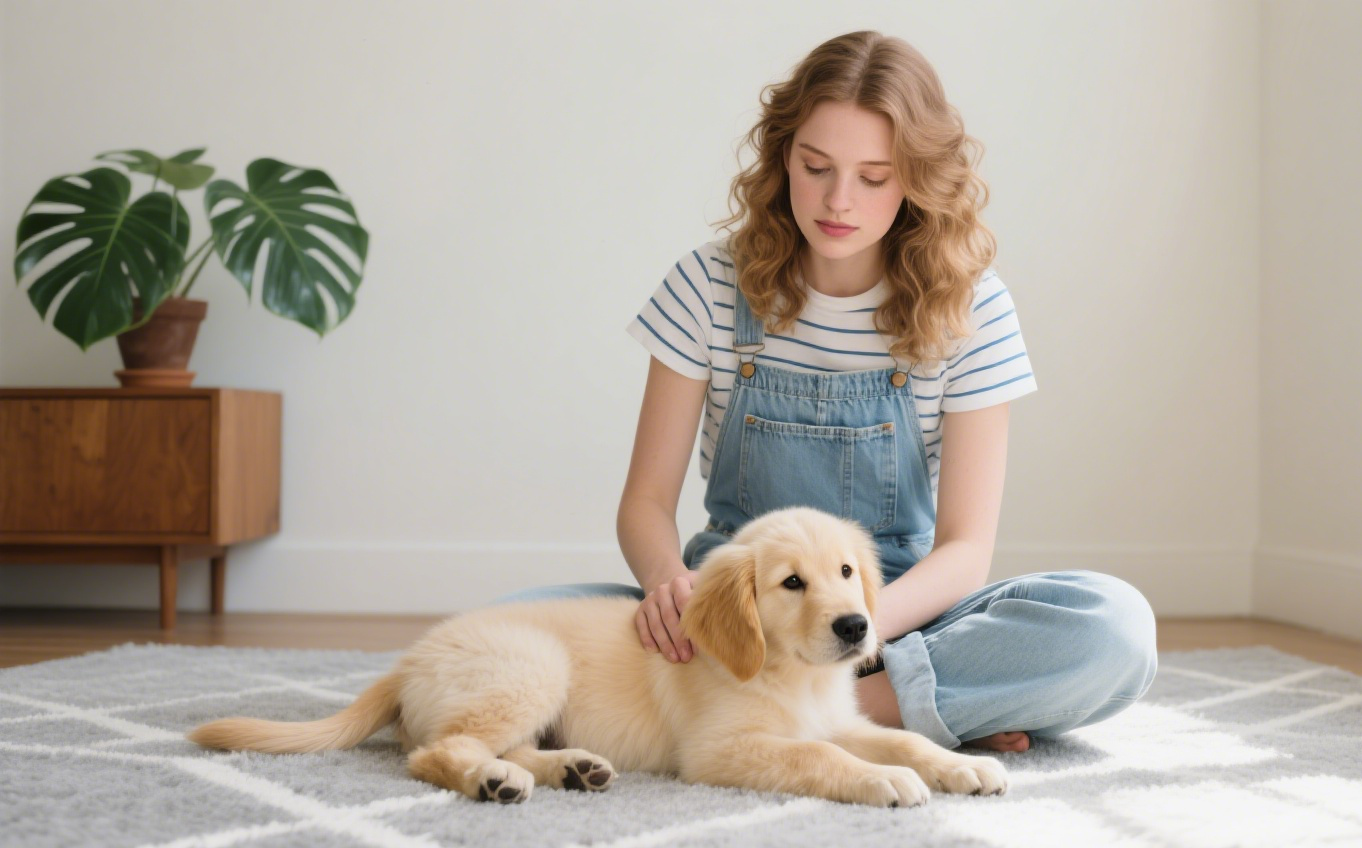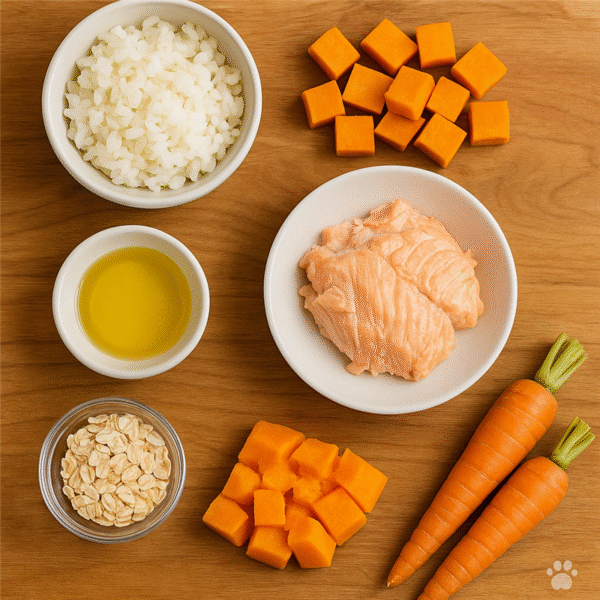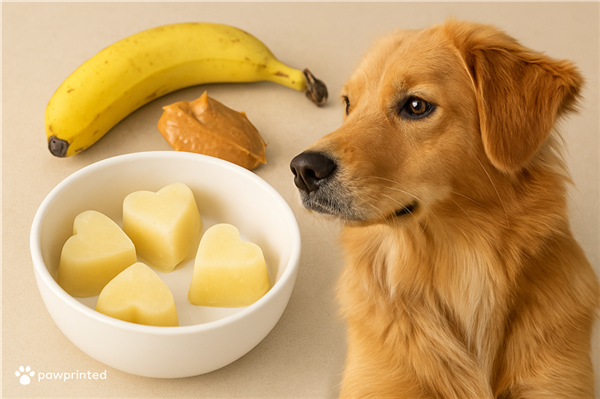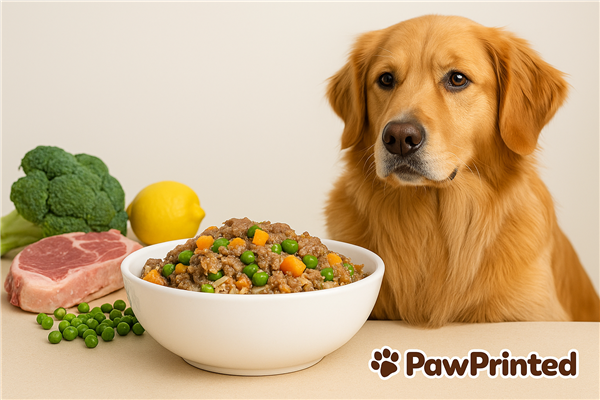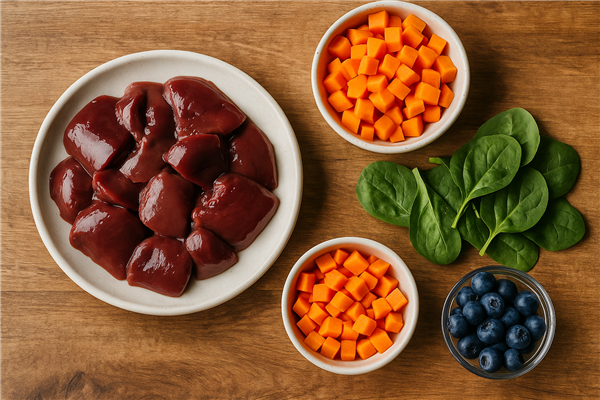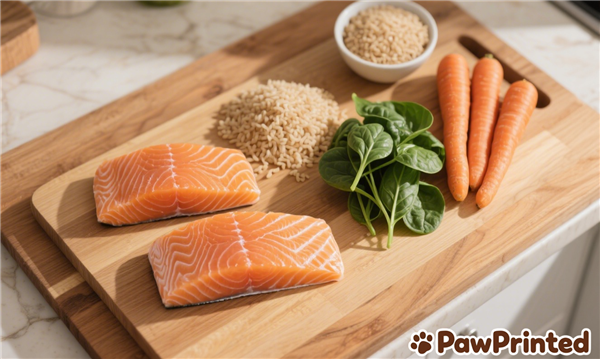Understanding Senior Dog Nutrition
As dogs age, their bodies change. Senior dogs often need fewer calories but more high-quality proteins, joint-supporting nutrients, and easily digestible ingredients. Choosing the right dog food for senior dogs can support their overall health, keep them energetic, and prevent age-related issues like obesity, arthritis, or digestive sensitivity.
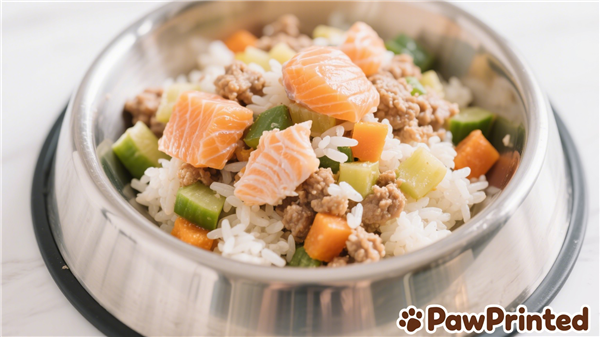
Key Nutritional Needs for Senior Dogs
- Lower Calories: Helps prevent weight gain.
- High-Quality Protein: Supports lean muscle mass.
- Joint Support: Glucosamine and chondroitin are important.
- Omega-3 Fatty Acids: Reduce inflammation and promote brain health.
- Fiber-Rich Ingredients: Improve digestion.
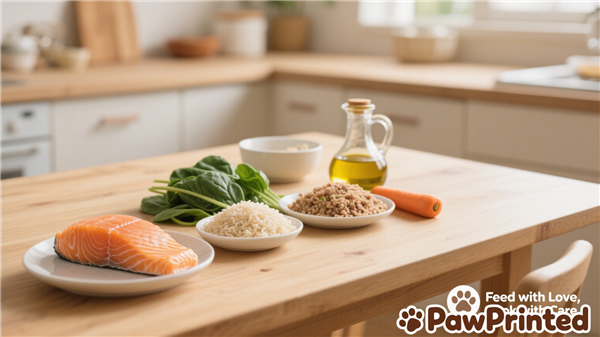
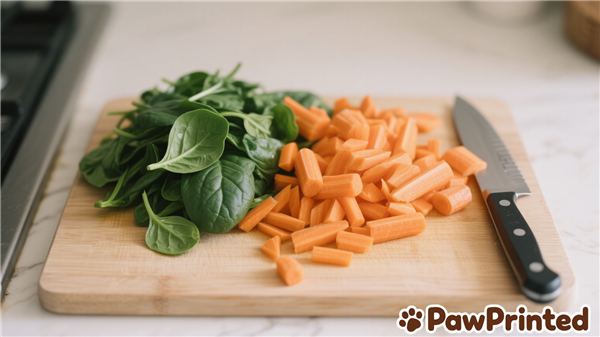
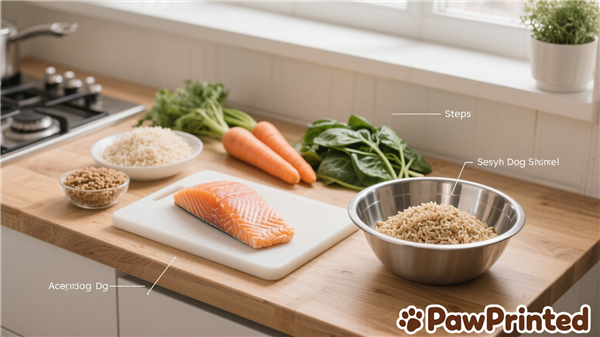
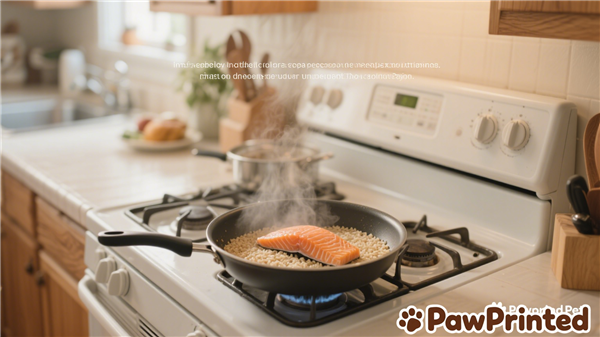
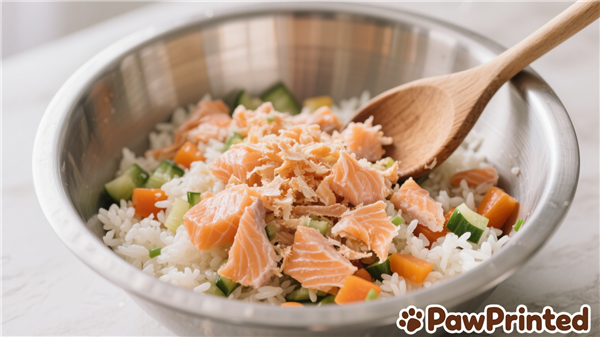
Homemade Senior Dog Food Recipe
This is a simple, vet-approved recipe with limited ingredients that is gentle on senior dogs’ stomachs.
Ingredients (5 or fewer)
- 1 cup cooked salmon (rich in omega-3)
- 1/2 cup cooked brown rice
- 1/2 cup steamed carrots (softened for easy chewing)
- 1/4 cup steamed spinach
- 1 tsp olive oil
Step-by-Step Guide
- Prepare the salmon: Cook the salmon thoroughly by baking or boiling. Remove all bones to ensure safety.
- Cook the rice: Boil brown rice until soft and easy to digest.
- Steam the vegetables: Lightly steam carrots and spinach until tender.
- Combine ingredients: Mix salmon, rice, carrots, and spinach in a bowl.
- Add olive oil: Drizzle with olive oil and stir until well blended. Let cool before serving.
Feeding Tips
- Serve in small portions to avoid overfeeding.
- Adjust serving sizes depending on your dog’s weight and activity level.
- Store leftovers in the fridge for up to 3 days.
FAQs About Dog Food for Senior Dogs
Can I feed raw food to my senior dog?
Raw food is harder to digest for older dogs. Cooked, soft, and easily digestible meals are usually better.
How often should I feed my senior dog?
Two smaller meals a day are recommended, instead of one large meal.
Should supplements be added?
Yes, but consult your vet. Common supplements include glucosamine, fish oil, and probiotics.
Can senior dogs eat puppy food?
No, puppy food has higher calories and fat, which may cause weight gain in older dogs.
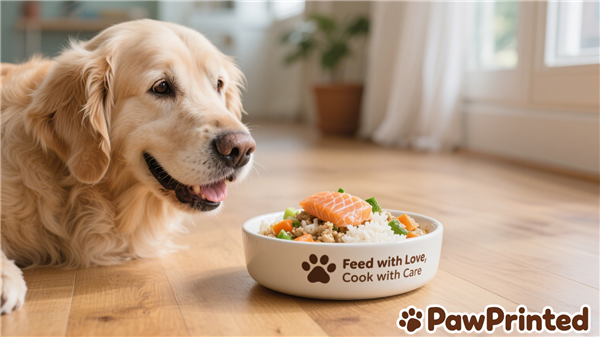
Owner’s Feedback
After preparing this meal for my 12-year-old Labrador, I noticed he finished every bite without hesitation. Usually, he’s picky, but this recipe seemed easier for him to chew and digest. Within a week, I saw improvements in his energy levels and his coat looked shinier. It felt rewarding to see my senior dog truly enjoy his food while staying healthy.

